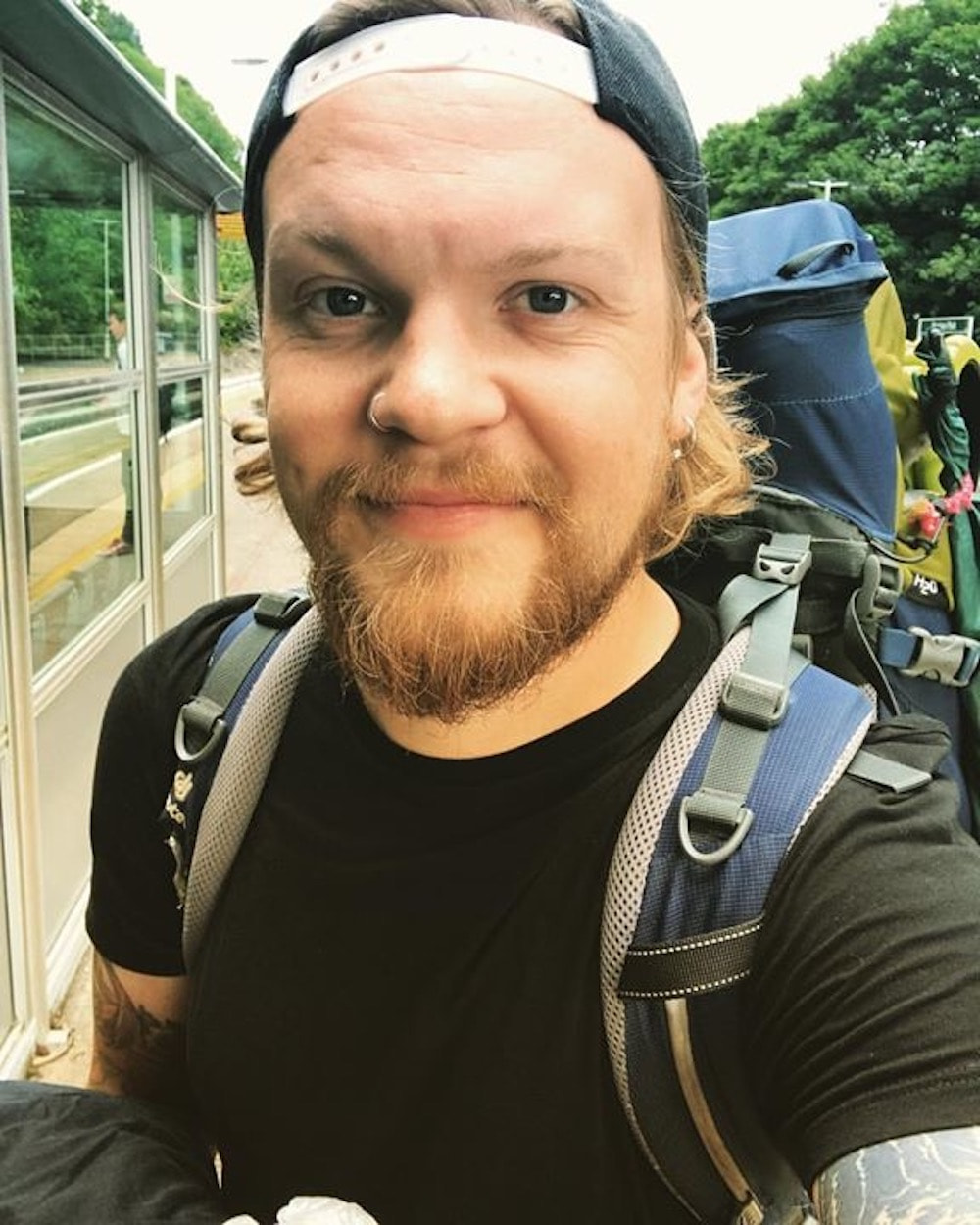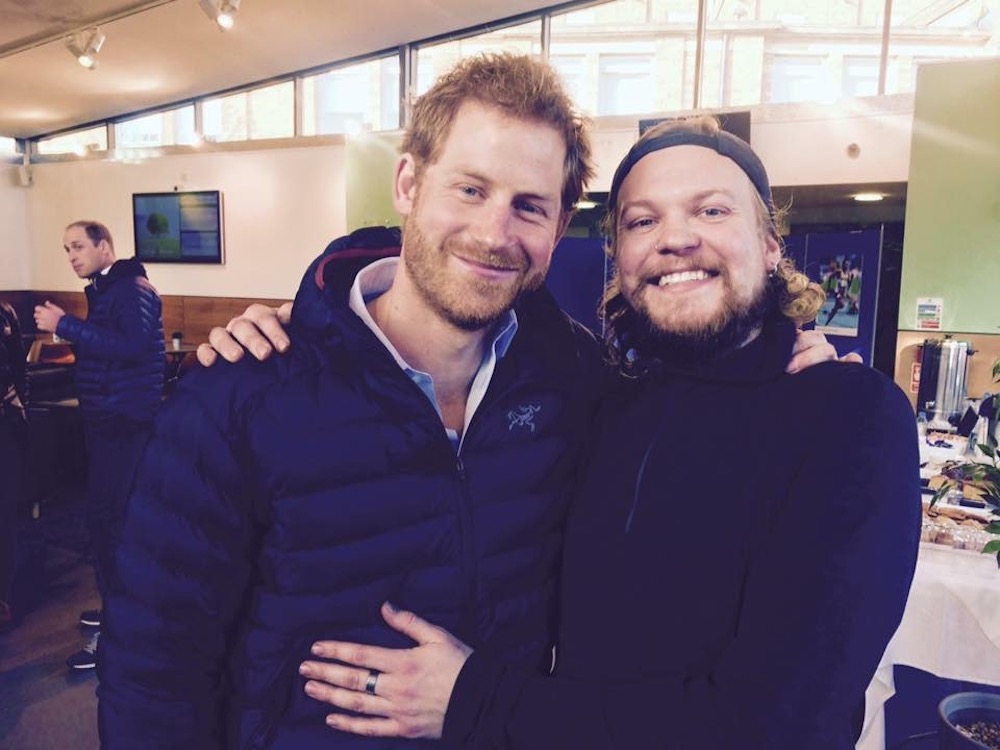When depression consumed him, Jake Tyler phoned his mum to say goodbye, having decided to take his own life. But she convinced him that they could find help together, and as he moved back home and started receiving professional help, Jake discovered the powerful effect of nature on his wellbeing. Jake started walking daily, and felt more positive and connected to the world around him with every step
In early April 2016, a week before my 30th birthday, I wanted to die.
One morning, I was lying motionless in bed in my east London flat above the pub I was running, too afraid to move. Years of living secretly under a rock of depression had caught up with me; I had finally run out of air, and I could no longer stand the pressure. Depression makes me feel like I’ve sat down to take an exam I know I’m going to fail. It’s like that feeling that hits you when you give something up after deciding you can’t do it, stretched out over an indeterminable period of time. You don’t choose for it to happen, and you can’t choose for it to stop. All you know is it’s here to stay, and it doesn’t give one shit about your schedule.
Jake Tyler
I used to chalk the good days up as victories, and the bad as me just being a miserable freak. I was ashamed and embarrassed that I felt the way I did, especially because I had no real reason to. My childhood was great, my adulthood was exhilarating and, on paper, I’m proud of what I’ve achieved in my life. But when you live with depression, you can never be truly happy for yourself, not really.
That morning when I was lying in bed was the most pain I’ve ever felt. I’d had enough, and was ready to die. I lived on the fourth floor, a high enough drop (I thought) to turn the lights out for good. But before I went, I had to hear her voice. Just once more. I reached for my phone and scrolled down my recent call list until I found her. Mum. Just reading the word brought tears to my eyes. She answered, and the rest is a blur. All I know is that she heard me and suggested we get me some help. That’s when everything changed.
The next day I was in a doctor’s office, describing what was going on inside my head – the hate, the despair, the misery, the suicidal scenarios. The doctor asked me a very important question: “Do you actually want to die, or do you just not want to feel this way anymore?”
How can something as simple as taking a walk and encountering the natural beauty of this country make me feel this much better?
It was a huge distinction to make, and one I couldn’t believe I hadn’t put to myself. He diagnosed me as having a major depressive episode, signed me off work, and suggested I go on a course of antidepressants. For my own reasons, I decided against pills. I wanted to try something else before I went down that road.
I moved back in with my mum, and after a few weeks decided to go for a walk. I really enjoyed it, so the next day I went out again. Without a job, this became my only routine, so I started doing it daily, and each day went further than the day before, until I was spending whole afternoons exploring the rural landscape of Essex.
Within a couple of weeks I was feeling better – not recovered, but on the up. Long walks and fresh air helped clear my head, and this got me thinking. Why don’t more people do this? How can something as simple as taking a walk and encountering the natural beauty of this country make me feel this much better?
Two months later I was heading west along the south coast of England. I set myself the challenge of walking 3,000 miles around Britain, hitting every national park and area of outstanding natural beauty, to highlight how beautiful this country is and encourage people to try managing their mental health in a positive, exercise-led way. I was laughably unprepared, but my excitement for the journey and the faith I had in the concept unearthed the cavalier attitude I needed to just do it.
I set off from Brighton Pier in summer 2016, and spent five months on the coast, averaging 15 miles a day, sleeping in a tent and documenting my physical and mental progress on social media. By the time I’d reached Wales’ Pembrokeshire coast, I was receiving messages from people all over the country, either telling me about their experiences, or wishing me luck. I couldn’t remember a time where I felt more at ease and connected to the world and people around me.
Around that time, I received an email from a casting agent at the BBC, who saw me as an ideal participant for a forthcoming two-part documentary about the correlation between mental health and exercise. In November I left the walk to begin filming the programme that would eventually be titled Mind Over Marathon.
The premise of the show was that I, along with nine others with mental health difficulties, were introduced to running and trained to run the London Marathon. The show was an enormous success, and the people involved are now some of my closest friends. Together we told our stories to the nation, and the people who watched found hope in our honesty.
Once the marathon was run and the dust settled, I went back to the walk, only this time I set out to run sections of it. I did a few trial runs, and by November 2017 I felt ready to send my huge pack home, and run the remaining 600 miles. The success of Mind Over Marathon meant that instead of sleeping in a tent through the winter, I was able to secure couches and spare rooms with strangers, which brought a whole new amazing dimension to the challenge.
Jake with Prince Harry
When I set off, I signed up for endorphins, open space and breathtaking scenery, but I could never have predicted where my journey would lead. The challenge became a lifestyle, and the people I met became my temporary best friends and family. I stayed with a neuroscientist who was trying (and succeeding) to cure hind-leg paralysis on dogs, an ex-serviceman I thought was going to kill me in my sleep, and a DJ who was the victim of a savage home invasion two months before, amongst others.
Reconnecting with people was what I really needed. In February 2018 I completed my walk, and promised myself the legacy would be to keep connecting, talking and listening to people’s stories. There’s strength in numbers, and when we talk about mental health, we really connect.
A month after the marathon, the Mind Over Marathon band got back together at a Walking Out Of Darkness event organised in London by CLASP, the suicide prevention charity. It was amazing to see so many people there, all with their own stories, all wanting to help bang the drum for mental health.
This year I’ve made it my mission to attend all seven Walking Out Of Darkness events, to hear as many stories as I can. We are who we surround ourselves with, and if we surround ourselves with people who understand what it’s like to struggle mentally, day in, day out, it shares the load, and makes life that little bit easier.
To join in with a Walking Out of Darkness event near you, visit walkingoutofdarkness.com and follow @claspcharity on Twitter for news and updates. Follow Jake on Instagram @blackdogwalks
Just when Jake thought he had reached the end of the road, he found he’d arrived at the point where his journey began. The most important thing Jake did was reach out for help – and accept it. It’s interesting that his doctor made him realise that there was more than one way of looking at how he felt. Jake’s courage and determination has transformed his life. He inspires us to remember that, even from the darkest corner, we all have the potential to succeed!

Join 100,000+ subscribers
Stay in the loop with everything Happiful



